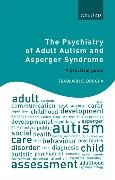Read more
Excerpt from Lectures Primaires: 100 Morceaux Choisis Avec des Explications, des Questions Et des Devoirs; 1er Degré du Cours Élémentaire
Maman, est - cc que tu es allée dans ce pays - là? Oh! Non, dit la maman, c'est trop loin. Alors comment sais - tu ce qu'on y trouve? Demanda l'enfant. Je l'ai lu dans un livre répondit la mère.
About the Publisher
Forgotten Books publishes hundreds of thousands of rare and classic books. Find more at www.forgottenbooks.com
This book is a reproduction of an important historical work. Forgotten Books uses state-of-the-art technology to digitally reconstruct the work, preserving the original format whilst repairing imperfections present in the aged copy. In rare cases, an imperfection in the original, such as a blemish or missing page, may be replicated in our edition. We do, however, repair the vast majority of imperfections successfully; any imperfections that remain are intentionally left to preserve the state of such historical works.
About the author
Traolach S. Brugha is Professor of Psychiatry at University of Leicester and Consultant Psychiatrist at Leicestershire Partnership NHS Trust, Leicester, UK
Summary
Autism, including Asperger syndrome, is a strongly heritable condition that can usually be diagnosed in children by the age of two or three years. Although autism is more common in the less intellectually able child, in the more able child the condition is often overlooked until adulthood. Epidemiological research has shown that most adults in the general population meeting the criteria for autism are unrecognized and undiagnosed. There is a growing pressure on
psychiatrists to be able to recognize autism and to consider its effects on their adult patients, particularly when they are also showing signs of another mental disorder, such as psychosis, personality disorder, or chronic depression.
The Psychiatry of Adult Autism and Asperger Syndrome: A practical guide introduces adult psychiatrists, including sub-specialist psychiatrists, to autism and Asperger syndrome. It covers recognition and diagnosis and the psychiatrist's role in treating patients with co-morbid mental disorder whilst taking account of the autism component. It explores the process of sign-posting patients with autism to appropriate care and support as family involvement diminishes or ceases.
While there are a number of books written on how to cope with autism as an adult, The Psychiatry of Adult Autism and Asperger Syndrome: A practical guide is aimed at the practising adult psychiatrist. The book describes normal and pathological functioning and then guides the reader through assessment and post diagnostic intervention issues. The use of fictionalized clinical examples helps to illustrate autism and its presentation in adulthood, and illustrate the issues psychiatrists
often raise in training workshops.

